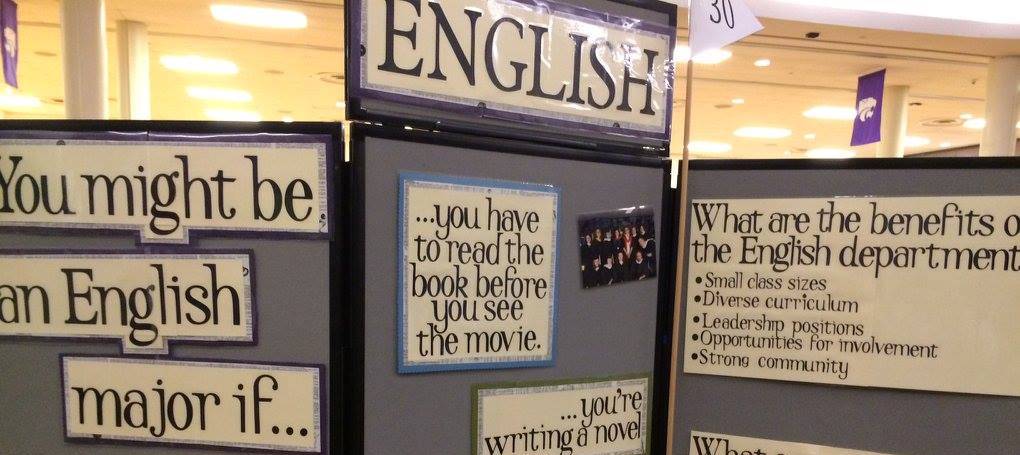English Department alums Tom Webb (MA ’16, above left) and Rob Probst (MA ’16, above right) explain how their internship experience as graduate students helped land them their first jobs — and why you should consider enrolling in English 759 “Studies in Technical Communication.”
Tom Webb (MA ’16)
First job after graduation: Grant Coordinator with the Orlando Science Center.
Current job: Program Manager at the Foundation for Seminole County Public Schools.
Every English graduate understands that at the end of their time in college they do not get to take a trip down to the English factory, put in their 8 hours, and secure a living. Without a “direct connection” to a job market, outside of teaching and more school, it becomes necessary to instead show off to potential employers how all of the great communication, researching, critical thinking, and time management skills that you cultivated in graduate school will transfer to their organization.
I learned to demonstrate this transfer by securing an internship with the College of Arts and Sciences during my second year. This opportunity gave me the chance to actually see how writing all of those papers, reading complex texts, and collaborating with my peers is meaningful experience that will help in the job market.
As I learned through my internship, it takes many of the same skills to research and write an Alumni Profile as it does an academic paper. During your internship, you will develop professional documents that should be added to your portfolio, which can be shown to perspective employers.
I know for a fact that my internship helped me land my first job as a grant writer — they told me as much!
Rob Probst (MA ’16)
Job after graduation and current job: Software Test Engineer I, Backstop Solutions Group, LLC.
My copyediting internship with Kansas History: Journal of the Central Plains for the History Department forged, as any of them will do, my critical reasoning and conceptual theory skills built through English 801 “Introduction to Graduate Studies” and my coursework into professional traits.
While the technical skills I learned as a copyeditor gave me a base to do my current work as an amateur manga publisher and software tester, I acquired what I needed to do well, and get hired, in the tech industry from the internship experience of the holistic process of moving a project to completion. More directly, the project structure and the methodical, concrete, detail-oriented analysis of copyediting is analogous to the software development cycle and quality checking of testing.
It was these soft and technical skills, acquired through the internship, that allowed me to perform impressively on the numerous challenges, games, and hoops involved in the hiring process for any tech industry gig.
But you should also take English 759 “Studies in Technical Communication” (shout out to Prof. Han Yu!).


